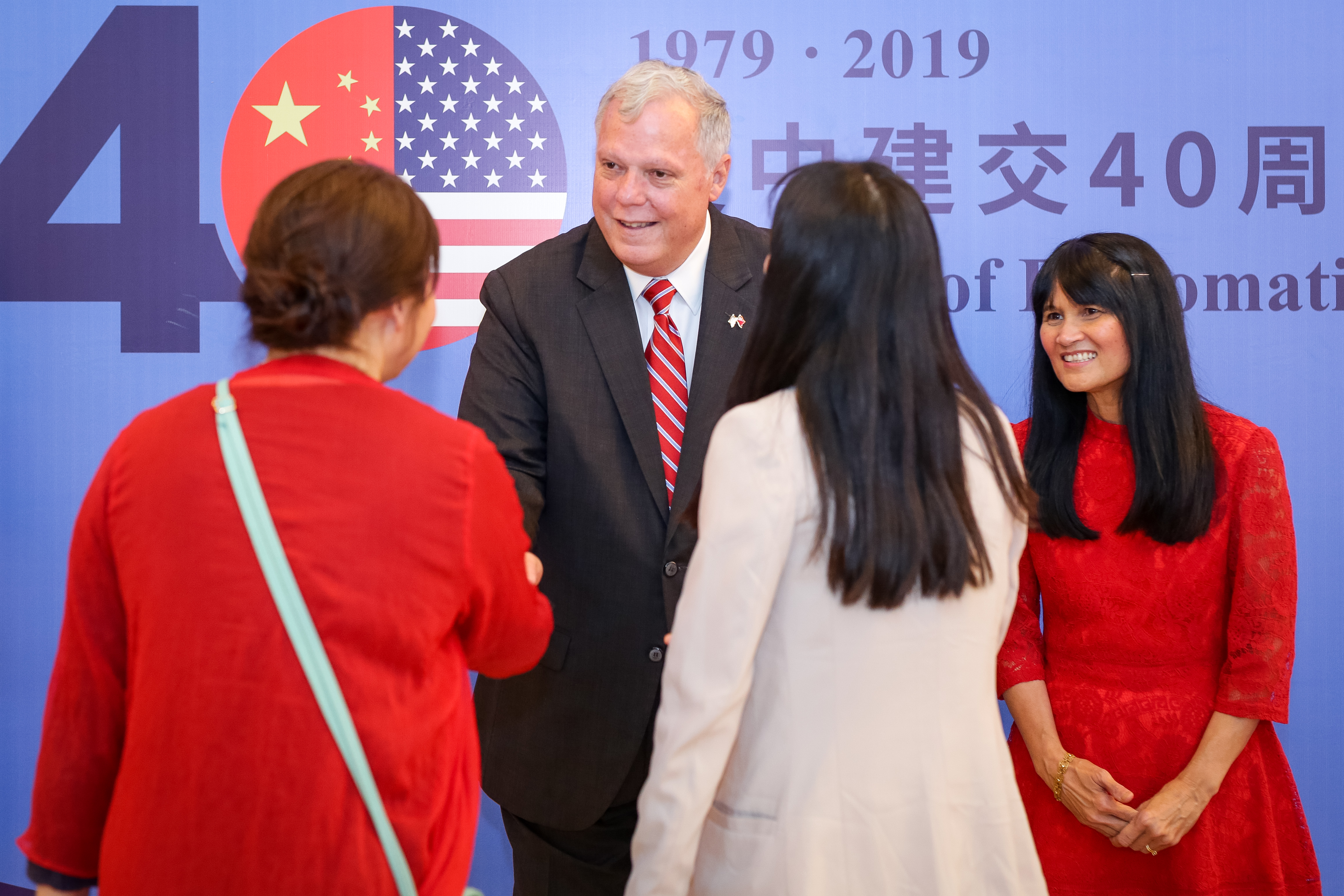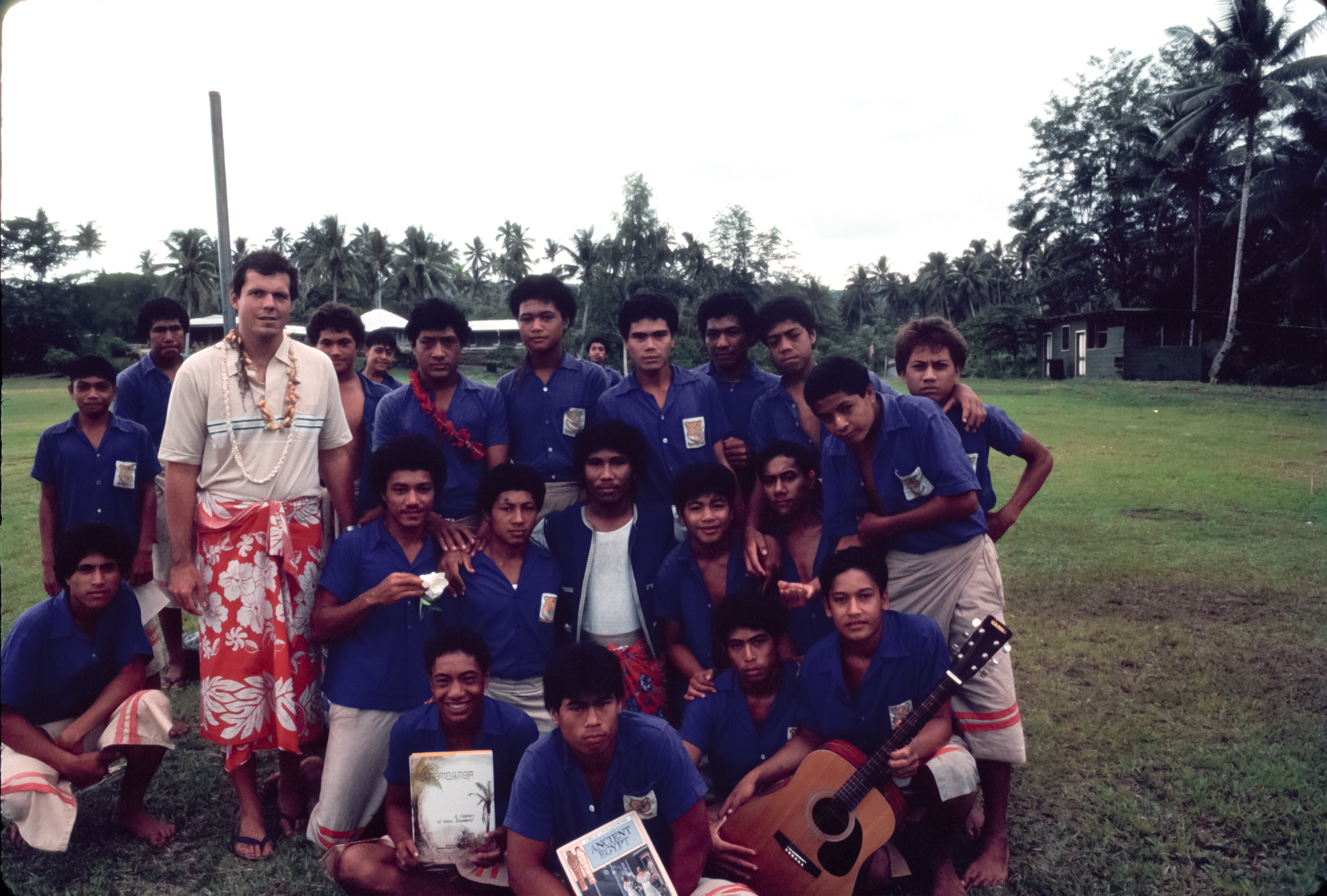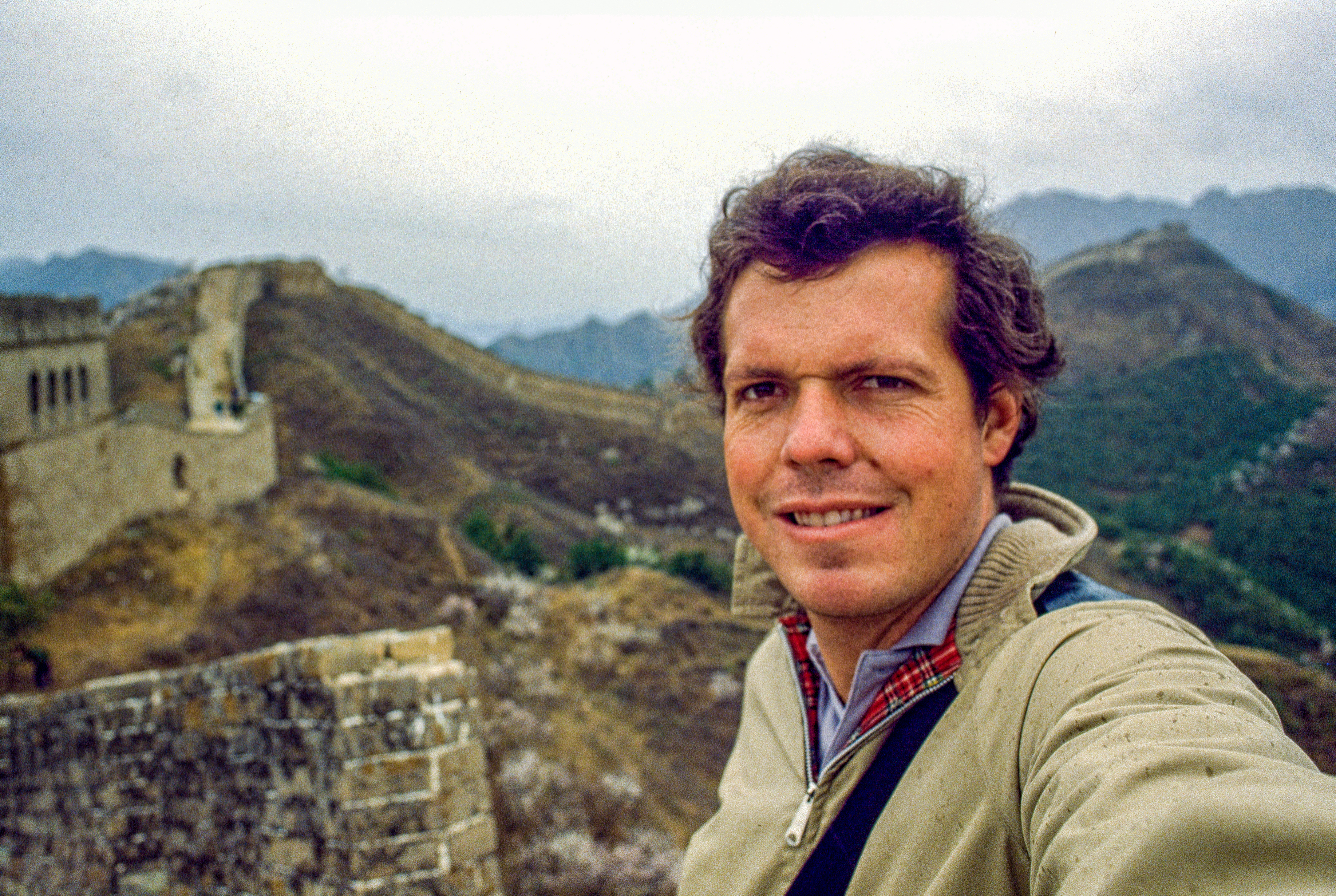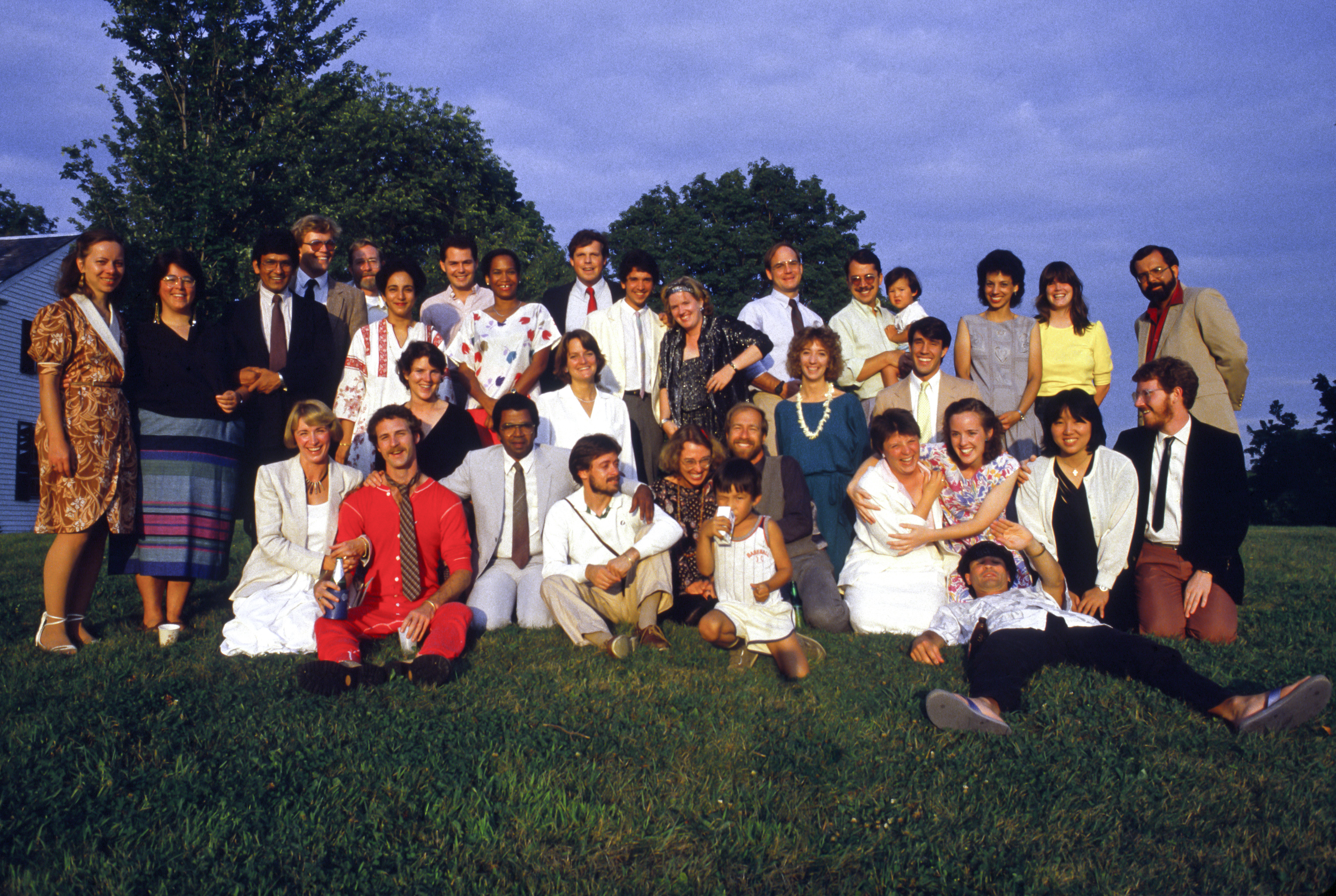SIT alumnus heads up U.S. Consulate evacuation and return to Wuhan, China
July 29th, 2020 | Alumni, Careers, SIT Graduate Institute

I think SIT prepared me well for my career. It made me realize that I learn from my environment and taught me about managing cross culturally.
When the U.S. Consulate in Wuhan, China, practiced a routine crisis management exercise in April 2019, none of the drills’ participants could have predicted they would be implementing shut down and evacuation orders less than a year later.
The new and novel coronavirus (COVID-19) was detected in the city in late December and by January, Wuhan was shutting down to contain the outbreak.
Consul General Jamie Fouss and other American personnel and their families hurriedly prepared to leave China on January 28. The group of 43, which included family members, were quarantined at the March Air Reserve Base in Southern California. Together with the rest of the 195 Americans on board that flight from Wuhan, they were the first U.S. citizens quarantined since 1963.
Fouss earned a Masters’ of Public Administration from SIT Graduate Institute, which at the time was known as PIM, short for Program in International Management.
He credits his time at SIT with helping him develop the skills required to handle such a complex situation.
“At SIT I learned how to manage people. It was all very useful. I really appreciated SIT’s educational approach. It was part of my foundation,” he says.
Following five months in the U.S., Fouss is back in China. SIT recently caught up with him for a Zoom interview on the last day of yet another two-week quarantine, this time before resuming his post in Wuhan.
He explains that crisis management encompassing a wide range of disasters and drills are vital to helping the consulate prepare for a variety of extreme challenges.
“We talked about a pandemic and what would happen,” he says. Complicating matters, the decision to shut the U.S. consulate and evacuate personnel coincided with the start of Chinese New Year. Three section chiefs were away. Fouss deputized lower ranking staff to take over some of the major responsibilities ahead of their imminent departure.
“The people who stepped up did a really excellent job because of their training,” Fouss says.
“I was reminded that we have a great team. We did something pretty remarkable. We were successful because we like and trust each other,” he says.
This summer, the U.S. Consul General is wrapping up his three-year tour in central China and preparing to hand over the reins to his successor.
As a diplomat, Fouss has had several posts in China as well as other places in Asia

He seemed poised for an international career early on. His father served in the U.S. Air Force in Okinawa, Japan, and Fouss went to high school there before studying anthropology at the University of Colorado. After graduation, he joined the Peace Corps in Western Samoa.
When he finished volunteering in 1984, he traveled to China for six weeks.
“China has really progressed in so many ways. To see the markets and compare them with modern shopping malls,” he says.
Fouss has photos from that first trip which he enjoys looking at with Chinese acquaintances, some who aren’t old enough to remember the old China.
When he first visited Wuhan in 2007, it was considered a second-tier city, ” he says. “It was big and dirty.”
Fouss returned a decade later.
“It had really cleaned itself up. There were subways and new office buildings,” he says of that visit, probably never imagining that one day he would head the U.S. Consulate in the city at the crossroads of China.

Eventually, he decided to go to graduate school and studied at SIT.
“I liked that it was just a six-month, in-person course, then a practicum, then a capstone project,” Fouss says.
“SIT had a good reputation for being a school that put a lot of development workers in the field,” he explains. “Having been a Peace Corps volunteer and enjoyed my training experience, I appreciated that SIT was more experiential and practical rather than theoretical or policy-focused.”
After completing his degree at SIT, Fouss spent five years at the Philippine Refugee Processing Center (PRPC), preparing Southeast Asian refugees to resettle in the U.S. During his time in Bataan, he married Esmeeh, one of the teachers, and had the first of two sons.
He also worked with the Peace Corps for several years as a country desk officer at its headquarters in Washington, DC, then as associate director in Western Samoa—where he had been a volunteer—and also country director in the Marshall Islands.
Later, Fouss developed cross-cultural training curriculum for Berlitz Cross-Cultural and went on to work for another Berlitz company, Training Management Corporation, as a consultant building multi-cultural teams.
“I think SIT prepared me well for my career,” he says. “It made me realize that I learn from my environment and taught me about managing cross culturally.”

He continues: “At SIT, we took time to debrief or process every experience group project we worked on. I learned that working inclusively and collaboratively is the best way to get the work done. I also learned about andragogy and how to use adults' life experiences and to facilitate discussions.
Fouss says he used training skills he learned at SIT to set up, run, and document Peace Corps pre-service trainings in Poland, Kiribati, and Namibia. Which eventually led to a job in Washington, DC as Peace Corps staff.
"I still use my training and facilitation skills today as I manage teams.”
Fouss went on to join the U.S. Department of State and has served in posts in Taipei, Beijing, Guangzhou, Dhaka, and Hyderabad.
Until August, he remains the top-ranking U.S. diplomat in Wuhan and is responsible for a consular district the size of Brazil.
Now best known as ground zero of the deadly global pandemic [it started at a live animal market close to the U.S. Consulate], Wuhan is also is an important hub for education and commerce.
According to Fouss, the city has the highest number of university students in the world. It is also the car manufacturing center of China.
“Central China is an important part of the growing Chinese economy. My role is to understand central China, encourage Chinese students to study in the U.S. and promote business ties between China and the U.S.” he says. “We want to sell American products.”
What’s next for this SIT alumnus? When he wraps up in China this summer Fouss will return to Washington, DC, then retirement in 2021.
Reflecting on his career, he says: “When I look back and I see these young people joining the foreign service right out of college. I’m envious that I didn’t get to start then what is an amazing career because of the places you get to see and the responsibilities you’re given.”.
“But I wouldn’t change what happened to me at all. It made me very appreciative,” he adds.
